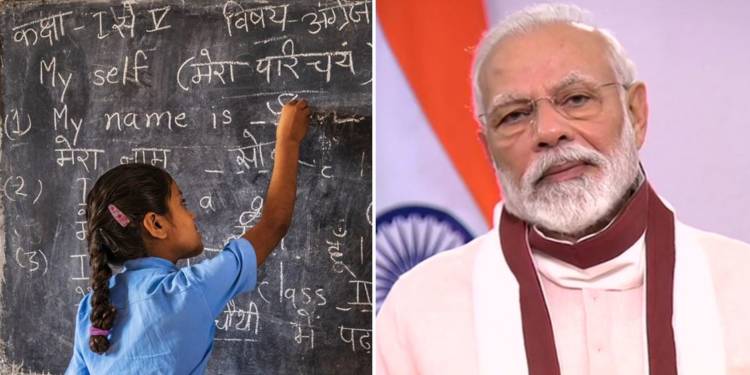The National Education Policy- 2020 is expected to bring many fundamental changes in India’s education system and prepare the students for life in the 21st century. One of the fundamental changes the new National Education Policy proposes is the use of mother tongue/local language as the medium of instruction till class 5, and preferably till class 8.
“Since most of the learning happens in the mother tongue, we ensured that wherever possible, the medium of instruction until at least Grade 5, but preferably till Grade 8 and beyond, will be the home language/mother-tongue/local language/regional language,” tweeted HRD minister Ramesh Pokhariyal.
As a student who was educated primarily in Hindi Medium till class 12, I feel like Hindi and other Indian languages are finally getting their long due. In India, especially in the power structure of Delhi, Indian languages never got their due for hundreds of years. First, the Muslim rulers made Persian the language of courts and official works and then the British came with the English language.
Persian was slowly phased out with diminishing of Muslim power in India and with the exit of British, English was supposed to be phased out with Indian languages- Hindi, Tamil, Telugu, Bengali, and hundreds of others- getting their due. However, this never happened as the new ruling elite were the byproduct of the Macaulayan education system- Brown in color but English in thinking.
The snobbery of the English language continued throughout the decades of socialism, thanks to those residing in elitist English speakers in Lutyens Delhi (who controlled National politics and bureaucratic power structure), South Bombay (who controlled businesses during License-quota Raj) and those living in Civil Lines (who controlled power in states and districts). These people, who considered themselves civilized thought that ruling the rest was their birthright. Several entry barriers, like Secularism and Liberalism, were imposed on the natives who wanted to enter into the civilized ruling elites. The people who got entry into the group of ruling for the first time- people like Ravish Kumar- propagated their flawed ideas secularism and liberalism- with the zeal of fresh converts.
Therefore, people like me, who were being educated in Hindi, have an inferiority complex in front of people educated in English. Those educated in Hindi Medium schools used to think that these people, who are being educated in the English language, have better ‘ideals’ and are certainly ‘smarter’ than us. So, instead of trying to compete with them, we felt that we must ‘imitate’ them or ‘follow’ them to achieve success in life.
We thought that we are not being ‘schooled’ well and those being educated in English are certainly going to do better in life than us. Therefore, whenever children of my relatives who were being educated in English came to our house, we would bombard them with questions on how certain things are being done in their schools- like what kind of prayers they do; whether girls and boys sit together; what homework they get, if they were being taught advanced science, history, or mathematics in lower grades so on and so forth.
However, as we progressed in life, and entered college, the hype around English language schooling went bust. I felt that I could solve problems in the academic world as well as the real-world than most of my peers who were educated in the English medium.
I figured out that the English language education is more about ‘social capital’ and ‘economic capital’ than anything to do with problem-solving or even education. Those educated in English language were more confident in public speaking, were more outgoing and often came with a sense of elitism and superiority.
In the end though, the superiority of the English language felt ‘superficial’. It had nothing to do with ideals or skills, and therefore, it is necessary to treat Indian languages on par with the English language in order to achieve parity. Many states like Uttar Pradesh and Madhya Pradesh, are adopting NCERT books which is used by CBSE. Given the fact that CBSE and ISC boards became synonymous with English language education over the years, using the same reading material would bring parity and end the debate about English language schools offering ‘better’ syllabus.
The initiative to lay emphasis upon Indian language as a medium of instruction is a welcome move, and as a product of Hindu Medium education, I feel that in the next few years students being taught in Indian languages would not suffer from the ‘inferiority complex’ in the way that we did.

























